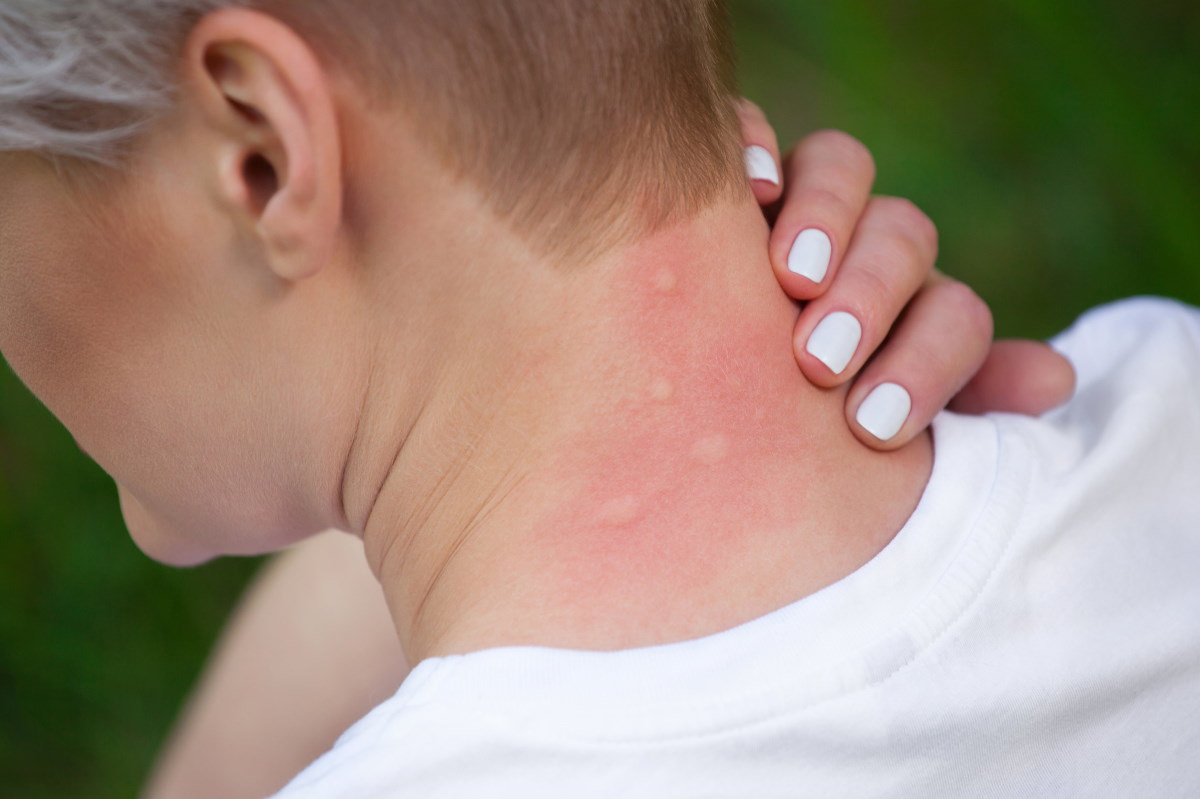Summer brings with it days outdoors, vacations and ... insect bites. Mosquitoes, bees, wasps, horseflies and even ticks become unwelcome protagonists of the summer season, causing discomfort ranging from itching to more serious allergic reactions. Knowing how to properly treat a sting is essential to avoid complications.
The most common bites are those caused by mosquitoes and cause redness, itching and slight swelling. They are usually harmless, but can become bothersome, especially in children.
Being outdoors and in meadows, one can also be stung by bees and wasps whose sting is painful and, as with mosquitoes, can cause local swelling, redness and, in some cases, major allergic reactions such as widespread hives, breathing difficulties or anaphylactic shock.
Horseflies, another typical summer insect, instead bite rather than sting. The bite is very painful, often causes a visible wound and bleeding, and in some cases can become infected.
More difficult to encounter, however, are ticks that attach to the skin and can remain anchored for hours. In this case The greatest risk is transmission of diseases such as Lyme disease.
If you are stung by a bug, the first thing to do is to wash the affected area with soap and water to avoid infection and, if necessary use ice to leviate the swelling and pain.
Itching can be combated by using soothing creams based on antihistamines or cortisone, and in any case it is important to avoid scratching because it can aggravate irritation or cause infection.
Usually insect stings do not require medical attention and the discomfort passes in a short time, but in puó severe cases they can cause major allegoche reactions causing swelling of the face/lips/throat, difficulty breathing, and dizziness.
Other signs not to be underestimated are persistent swelling or pain for more than 48 hours, erythema migrans (red target spot), and signs of infection such as pus, intense heat, and fever.
In these cases, timely referral to a specialist is useful, who, having assessed the severity of the sting can prescribe medications and manage the skin reaction is persistent, cases of major allergic reactions (especially for suspected allergies to bee or wasp stings). When, on the other hand, a tick-borne or insect-borne disease in general is suspected, it is necessary to refer to an infectivologist.
Insect bites are often harmless, but they should not be underestimated, and it is still advisable to follow certain precautions to prevent them.
In fact, skin and abiente repellents, mosquito nets, and proper clothing that covers the upper and lower others are effective if you frequent risky areas such as campgrounds or forests.
Early and targeted intervention can make a difference, especially if abnormal symptoms occur.
